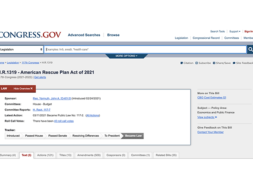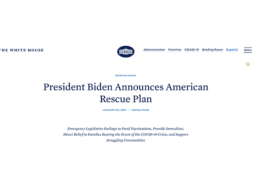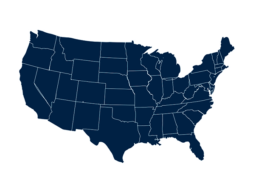
CFPB Rules Proposal may Drastically Impact School Arbitration Agreements
By Bill Ojile, Partner, and Henry Baskerville, Of Counsel, Armstrong Teasdale, LLP
On October 7, 2015, the Consumer Financial Protection Bureau (CFPB) announced its intent to launch a rulemaking process that would prohibit companies from using arbitration clauses that preclude consumers from filing class action lawsuits. The CFPB’s proposal would apply generally to all of the consumer financial products and services that the CFPB oversees, including credit cards, checking and deposit accounts, certain auto loans, small-dollar or payday loans, private student loans, and some other products and services as well. If adopted, the CFPB’s proposed rules will undo recent U.S. Supreme Court’s decisions1 and weaken the protections afforded by the Federal Arbitration Act. For these reasons, school owners who offer institutional financing and who use arbitration agreements in their enrollment documents should pay careful attention to the CFPB rulemaking process.
1See, e.g., Stolt-Nielsen S.A. v. AnimalFeeds International, 559 U.S. 662 (2010) and AT&T Mobility v. Concepcion, 563 U.S. 333 (2011).
Background on arbitration as a dispute resolution tool
The Federal Arbitration Act (FAA) was enacted by Congress in 1925 and provides for judicial facilitation of private dispute resolution through arbitration. The FAA unequivocally states that written arbitration provisions “shall be valid, irrevocable, and enforceable, save upon such grounds as exist at law or in equity for the revocation of any contract.” Section 2 of the FAA declares that arbitration provisions will be subject to invalidation only for the same grounds applicable to contractual provisions generally, such as unconscionability or duress. Consequently, most state laws that disfavor the enforcement of arbitration agreements are preempted by the FAA. The Supreme Court has, on many occasions, upheld the validity of the FAA and its preemption of state law.
Recently, the Supreme Court has held that parties to an arbitration agreement must expressly agree to resolve disputes through class arbitration and that a party can waive the right to settle a dispute through a class action. First, in the 2010 Stolt-Nielsen case, the Court ruled that class arbitration cannot be ordered without evidence that the parties actually agreed to such a procedure, and that the mere silence of an arbitration clause on the issue does not satisfy this requirement. The Supreme Court held that “[i]mposing class arbitration on parties whose arbitration clauses are ‘silent’ on that issue is” not “consistent with the [FAA].” The Court went on to hold that a party “may not be compelled under the FAA to submit to class arbitration unless there is a contractual basis for concluding that the party agreed to do so.”
Next, in Concepcion, the Supreme Court decided that the FAA preempts state laws that prohibit contracts from disallowing class-wide arbitration. The Court held that “[r]equiring the availability of class-wide arbitration interferes with fundamental attributes of arbitration … [W]e find it hard to believe that defendants would bet the company with no effective means of review, and even harder to believe that Congress would have intended to allow state courts to force such a decision.”
Consumer advocates have criticized the use of mandatory arbitration by for-profit colleges. These criticisms have resulted in recent attempts to curtail use of arbitration by for-profit schools. For instance, legislation was proposed in Congress in April that would prohibit schools from requiring arbitration of student disputes. The Court Legal Access & Student Support (CLASS) Act – introduced by Sen. Dick Durbin of Illinois and Rep. Maxine Waters of California – would prohibit any school receiving Title IV funding from including any restrictions on students’ ability to pursue legal claims against schools in a court, either individually or with others. Also, when Education Credit Management Corporation purchased a number of campuses from Corinthian College, part of the agreement with the Department of Education required ECMC to cease requiring enrolling students to agree to mandatory arbitration of disputes with the school.
CFPB became involved in this issue based on a section of the 2010 Dodd-Frank Act that directed CFPB to study “the use of agreements providing for arbitration of any future dispute…in connection with the offering or providing of consumer financial products or services” and to provide a report to Congress on that subject. The CFPB published its Arbitration Study in March 2015, and will rely upon the study to support its rules proposal.
The upshot of the CFPB’s contemplated rule is to ensure that a business’ use of an arbitration clause in a consumer contract does not prevent groups of consumers from filing class or mass action lawsuits. The CFPB appears to believe that the filing of a class action lawsuit is an effective means to redress consumer issues, and that it needs to prevent any roadblocks that may limit the ability of consumers to initiate such actions. In doing so, it appears to ignore the costs that such cases can impose on the defendants and the questionable value of the outcomes obtained on behalf of consumers. Generally, only the plaintiffs’ lawyers financially benefit from such suits.
Arbitration agreements used by schools
Many schools have used agreements for mandatory arbitration of disputes in their enrollment documents for quite some time. These agreements require students with disputes or grievances to file arbitration, as opposed to bringing their claims in a state or federal court. They also usually expressly state that both school and student waive their rights to trial by jury. Arbitration is favored because it generally allows for a quicker and cheaper resolution of a dispute in a private fashion.
Typically, a school will have a dispute resolution process in its catalog, and students are encouraged to go through that process first and use arbitration as the last resort for unresolved disputes. Current best practice in drafting arbitration agreements makes clear that the parties can seek relief in a small claims court for claims within the scope of that court’s jurisdiction (consistent with the new AAA consumer rules discussed below) and do not limit the ability of a student to file a complaint with the state regulatory agency or accrediting agency.
Pre-2010, most arbitration agreements did not include an express waiver of mass and class action claims. As a result, many schools increasingly faced threats of such suits. But, because of Concepcion, Stolt-Nielson and other Supreme Court decisions on the subject, many schools modified their arbitration agreements over the past five years to include specific language prohibiting class or mass action claims. Currently, schools that include class action waivers in their arbitration agreements can require consumers to bring claims only in individual arbitrations, rather than in arbitration or in court as part of class action litigation.
Recently, the American Arbitration Association (“AAA”) revised its Consumer rules to make them more consumer friendly. The reforms made by AAA included, among other things:
- Clear and adequate notice of the arbitration provision and its consequences, including a statement of whether arbitration is mandatory or optional;
- Information regarding the arbitration process, including basic distinctions between arbitration and court proceedings, related costs, and advice as to where they may obtain more complete information regarding arbitration procedures;
- Notice of the option of small claims court as an alternative to arbitration when the amount in dispute would qualify for small claims court jurisdiction;
- Assurance that the arbitration takes place in a location convenient for the consumer; and
- The amount a consumer pays for arbitration tied to the costs of initiating a similar case in court.
The AAA’s changes to the Consumer rules were designed to ensure consumer understanding of the arbitration process, make certain the cost of arbitration does not create a barrier for consumer’s use of arbitration, and keep insignificant disputes in the small claims court process. Viewed in light of current developments, these changes initiated last year appear designed to bolster the arbitral forum from a consumer prospective.
The AAA now maintains a publicly available Consumer Clause Registry, which was created to provide more access to information about the AAA’s consumer arbitration services. In particular, the Registry will contain a list of businesses that have submitted their consumer arbitration clauses to AAA and when, after review, the AAA has determined the clause complies with the due process standards of the revised Consumer Rules. If a business has not registered its consumer clause prior to the filing of an arbitration proceeding, AAA requires that the business registers its clause at that time.
If you have not reviewed your school’s arbitration agreement in recent years, doing so now makes good sense.
How could the contemplated CFPB rules impact schools?
The CFPB’s purpose is to regulate the offering and provision of consumer financial products or services under the Federal consumer laws. While CFPB has been aggressive in its investigation of for-profit schools and has filed lawsuits against several schools, it needs some financial hook in order to assert jurisdiction. Institutional financing programs have been the CFPB’s jurisdictional hook for pursuing schools. Under these programs, a school finances the gap between tuition and federal student aid proceeds. Such programs are considered “private student loans” under federal law and fall squarely under the purview of the CFPB.
Limitations contained in current arbitration agreements will change if the CFPB has its way. Under the CFPB’s proposal, schools that fall under the CFPB’s purview could still use an arbitration clause, but only to the extent that the clause applies to arbitration of disputes on an individual basis. Schools could no longer contract with their students to preclude class action or mass action proceedings. In fact, schools would have to say explicitly the opposite: that the arbitration clause does not apply to cases brought on behalf of a class unless and until class certification is denied by the court or the class claims are dismissed.
What should schools do in light of the potential CFPB rules?
What does this mean for schools? If your school provides student loans or funding, the contemplated rule will affect you. While the CFPB has not yet published its proposed rules, unless a school has an institutional financing program it seems unlikely that the CFPB rules once promulgated would allow CFPB jurisdiction over arbitration agreements in enrollment documents. But, a school that has an institutional financing program cannot presume that the CFPB arbitration rule will apply only to documents related to the financing program. As noted, on numerous occasions the CFPB has used its limited jurisdiction over institutional financing programs to launch more broad based attacks on the totality of a school’s interaction with its students. Thus, it seems likely that CFPB will try to apply its rules to arbitration agreements beyond those contained in financing documents such as those found in enrollment documents.
The CFPB’s proposal would all but eliminate the protections afforded by the current arbitration agreements used by schools in their enrollment documents. It is clear the CFPB’s proposal, if enacted, would prevent schools from including language in their arbitration agreements prohibiting class or mass actions. If the CFPB’s proposal is enacted, schools will be required to amend their arbitration agreements, or risk having them deemed unenforceable under the CFPB’s rule.
Schools that rely on arbitration agreements in their financing contracts should seek legal counsel as to whether the scope of the CFPB’s proposed rules may impact their use of arbitration clauses. In addition, schools subject to the CFPB’s rules should consider monitoring the CFPB rulemaking process and possibly submitting comments to the CFPB on the proposed rules.

BILL OJILE is a partner in the Denver office of Armstrong Teasdale, LLP where he advises, counsels and litigates on behalf of companies in highly regulated industries, including higher education, helping them to resolve difficult legal, compliance and policy issues. Prior to joining Armstrong Teasdale, Ojile was Senior Vice President – Chief Legal & Administrative Officer for Alta Colleges, Inc. in Denver, CO from 2006-2015, where he was responsible for the legal, compliance, regulatory, human resources, corporate governance and governmental affairs of the company. He received his Bachelors of Science degree in accounting from the University of Nebraska-Omaha and his law degree from the University Of Nebraska College Of Law.
Contact Information: Bill Ojile // Armstrong Teasdale, LLP // 4643 S. Ulster St., Suite 800 Denver, CO 80237 // 303-575-4000 // bojile@armstrongteasdale.com

HENRY BASKERVILLE , of counsel to the Litigation practice group, is an experienced trial attorney who focuses on white collar criminal, complex commercial cases, and higher education. Before joining Armstrong Teasdale, Baskerville practiced at a litigation boutique law firm in Chicago. He received his Bachelor of Arts degree in philosophy from Boston College and his law degree from Loyola University Chicago School of Law.
Contact Information: Henry Baskerville // Armstrong Teasdale, LLP // 4643 S. Ulster St., Suite 800 Denver, CO 80237 // 702-722-7185 // hbaskerville@armstrongteasdale.com










